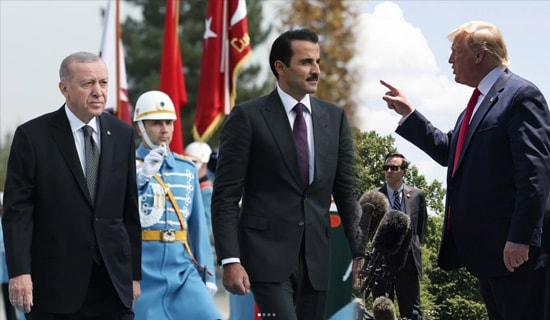The Arab Human Development Report (AHDR 2003) was issued by the United Nations Development Programme (UNDP) jointly with the Arab Fund for Economic and Social Development. AHDR 2003 was written by a team of specialists from across the Arab region headed by Nader Fergany, director of the Cairo-based Almishkat Center for Research and Training. It was released in Amman, Jordan, on October 20, 2003 in both English and Arabic.
The report is the second in a four-part series covering issues of freedom, political institutions, gender imbalance, and the empowerment of women in 22 Arab states. The reports are divided into two sections—the first examines human development indicators, while the second focuses on a particular theme. While in the first report [1] the key theme was "deficit," (i.e. freedom deficit or the women's empowerment deficit), the key theme in this report is "block," or a series of blocks that hamper the building of a knowledge-based society in Arab countries. The well-known Egyptian journalist Muhammad Hassanain Haikal said AHDR 2002 signaled the region's "last chance to join the trip to the future." [2]
Raghda Dergham, the London-based daily Al-Hayat's correspondent in New York, stated: "This report takes its importance in the fact that it dares to address taboo subjects, including the relation between state and religion, as well as between religion per se and the use that is made of it to serve specific ends." [3] Perhaps the report was so daring that the Arab League initially refrained from addressing its findings. Amru Moussa, the Secretary General of the Arab League, stated only that the delay in commenting on it was due to his travels overseas. [4]
As stated in the introduction by Abdel Latif Youseff El Hamed, the Director General of the Arab Fund, the co-sponsor of the report, the knowledge system is a process of "transforming knowledge wealth into knowledge capital" in order to generate and disseminate new knowledge in physical, economic, and human endeavors. [5] Thus, a society that does not provide incentives and resources to knowledge acquisition is likely to find itself falling behind, if not at the bottom of, the knowledge society. The report observes that a knowledge society means "instituting knowledge as the organizing principle of human life." It hastens to add forcefully and unequivocally "that Arab countries are far removed from such a society." [6]
The report mentions a number of factors that block the dissemination of knowledge. Among these factors are authoritarian and over-protective child rearing, the deteriorating quality of education in many countries in the region, curricula in schools that encourage submission, obedience, subordination and compliance rather than free critical thinking, the lack of autonomy at universities and the poor state of university libraries. [7] The report also criticizes the production of knowledge and uses the number of patents registered in the United States as a proxy. Between 1980-1999/2000 Arab countries as a group registered 370 patents. In the same time period Korea registered 16,328 patents and Israel 7,652 patents. [8] What might explain this deficiency in knowledge production is the rate of expenditure as a percentage of GNP for R&D funding. In the U.S. the average expenditure is 3.1% of GNP, in a number of major European economies it is 2.4%, but in the Arab states as a group the corresponding figure is a meager 0.2% of GNP.
Brain Drain
The report underscores a fundamental premise that the free flow of knowledge within society requires "a democratic value system and the elimination of corruption." In the absence of democracy and the prevalence of corruption in the highest echelons of government, educated individuals emigrate to countries where they can maximize their potential. The report estimates that by the year 1976, 23% of Arab engineers, 50% of Arab doctors, and 15% of Arab BS holders had emigrated. Roughly 25% of 300,000 first degree graduates from Arab universities in 1995/6 emigrated. Between 1998 and 2000 more than 15,000 Arab doctors migrated. [9] In the case of Iraq, for example, the 30-year totalitarian regime has driven more than 3 million Iraqis outside the country, including some of the most educated. It was estimated by the Iraqi daily Al-Zaman that 2,000 Iraqi doctors work in British hospitals. [10]
September 11 and Its Aftermath
The report dwells at length on the consequences of September 11 on the developments of the Arab region. "A new historical era is rapidly unfolding;" asserts the report, "not only because of the high human toll… but also because of the of the political and security consequences of that cataclysm." [11] The war on terror and the measures taken by advanced democracies of the world, and by the United States in particular, to protect themselves against terrorism provided an excuse for repressive regimes in the Arab countries to further tighten the grip on the their populations. Acting within the "Arab Charter for Anti-Terrorism," which "neither explicitly prohibits detention or torture, nor provides for questioning the legality of detentions," Arab regimes curbed freedoms through an expanded definition of terrorism. [12] The report equally criticizes the proclivity of the Arab regimes to use the pretext of Israeli domination to defer political and economic reforms. As a result, while the general trend saw "freedom rise worldwide, in Arab countries it fell." Arab countries, according to the report, "on average, continued to evince the lowest levels of freedom among the world regions compared." [13] Incidentally, the report refers to 25 Arab states whereas only 22 Arab states, including Palestine, exist as members of the Arab League. [14] It remains a curiosity as to which three unaccounted for Arab states are not members of the Arab League.
Palestine and Iraq
AHDR 3 stresses the consequences of the occupation of the West Bank/Gaza in terms of denying Palestinians freedom and human dignity and aborting their internationally recognized right to self-determination. At the same time, the threat of Israeli domination "creates a pretext for deferring political and economic reforms in Arab countries in the name of national solidarity against a formidably armed external aggressor." [15]
The report also addresses the occupation of Iraq and the overthrow of "a totalitarian regime that oppressed the Iraqi people and deprived them of a wide spectrum of rights and freedoms." [16] It also indirectly criticizes the occupation of Iraq for allegedly trying to restructure the Middle East region "by [utilizing] outside forces pursuing their own objectives." [17] The report does not mention Saddam Hussein as the principal conductor who single-handedly orchestrated many of the crimes inflicted upon the Iraqi people. This is not an oversight by the authors of the report who, in principle, reject the notion of replacing an Arab leader by use of an outside force. Keeping the name of Saddam out of the report is tantamount to writing a report on fascism without mentioning the name of Mussolini. This omission may be seen as part of a tendency evinced throughout the report to identify countries when referring to positive news, but concealing their names when the reference is negative. [18]
Mass Media
With regard to access to mass media, the report identifies a number of shortcomings. In general, the report says, "Arab countries have lower information media to population ratios [number of newspapers, radio and television sets per 1,000] compared to the world average and to the average of middle-income countries." Examples: 53 newspapers per 1,000 people versus 285 in developed countries due to high rates of illiteracy and a low standard of professionalism dictated by various instruments of control and coercion. [19] According to the report:
"Legalized restrictions on freedom of the press and freedom of expression in Arab countries curtail the independence and vitality of the mass media. In practice, the harassment of the press under the law is an all-too-frequent violation of freedom of expression, with newspapers sometimes facing closure, seizure, confiscation and sequestration." [20]
The report refers to the issue of translation as a way of interacting between civilizations through the transfer from one language into another for the purpose of achieving scientific and cultural objectives. The report complains that Arab countries have not learned from the lessons of the past and "the field of translation remains chaotic." The number of translations remains small; in the first half of the 1980s the average number of books translated per 1 million people in the Arab world during a 5-year period was 4.4 while in Hungary it was 519 and in Spain 920. The number for Israel is approximately 380. [21]
Strategic Vision
The final chapter of the report articulates a strategic vision for Arab countries. At the outset, however, the report concludes that "knowledge in Arab countries today appears to be on the retreat." This determination is followed by a warning that "without a strong and growing knowledge base of their own, Arab countries will be drawn into the international knowledge society as passive consumers." [22]
The strategic vision rests on five pillars: [23]
- Unleashing and guaranteeing the key freedoms of opinion, speech, and assembly through good governance. ("A climate of freedom is an essential prerequisite of the knowledge society.")
- Disseminating high quality education based on educational outcomes and life-long learning. ("If knowledge is to be acquired for this purpose, Arab countries will have to undertake deep and serious reform of the educational system.")
- Indigenizing science, universalizing research and development (R&D) in societal activities and keeping up with the information age. ("Most of what is produced in the Arab world is not competitive with what international markets offer.")
- Shifting rapidly towards knowledge-based production. ("Arab countries have little choice but to pursue deep reforms in their social and economic structures.")
- Establishing an authentic, broadminded, and enlightened Arab general knowledge model. ("In Arab countries where the political exploitation of religion has intensified, tough punishment for original thinking, especially where it opposes the prevailing powers, intimidates and crushes scholars.")
The report concludes: "Knowledge lights the lamps that point out the way on the Arab journey to the future. Nothing in religion, culture and history blocks those beacons. On the contrary, Arab heritage declares that knowledge must shine through all the endeavors of humankind. What has blotted out that light is the work of mortals: the defective structures — political, social and economic — that have hidden knowledge from the Arab people and eclipsed its full possibilities. Yet what human beings have wrought human beings can remove, and must, so that the flame of Arab learning can once again burn bright and long in this new Millennium of Knowledge." [24]
* Dr. Nimrod Raphaeli is Senior Analyst of MEMRI's Middle East Economic Studies Program.
[1] See MEMRI Human Development in the Arab World: A Study by the United Nations; "Human Development in the Arab World: A Study by the United Nations."
[2] AHDR, p. 20.
[3] Al-Hayat (London), October 24, 2003.
[4] Al-Sharq Al-Awsat (London), October 29, 2003.
[5] AHDR, 2003, p. v.
[6] AHDR, p. 40.
[7] AHDR, pp. 51-56.
[8] AHDR, Table 3.1, p. 71.
[9] AHDR, p. 144.
[10] Al-Zaman (Baghdad), October 27, 2003.
[11] AHDR, p. 22.
[12] AHDR, p. 23.
[13] AHDR, p. 28.
[14] AHDR, p. 22.
[15] AHDR, p. 23.
[16] AHDR, p. 26.
[17] AHDR, p. 27
[18] See, for example AHDR, p.30
[19] AHDR, pp. 59-60.
[20] AHDR, p. 62.
[21] AHDR, p. 67 and Figure 2.9, p.68
[22] AHDR, p.163
[23] AHDR, pp. 162-173.
[24] AHDR, p. 178.




.jpg)